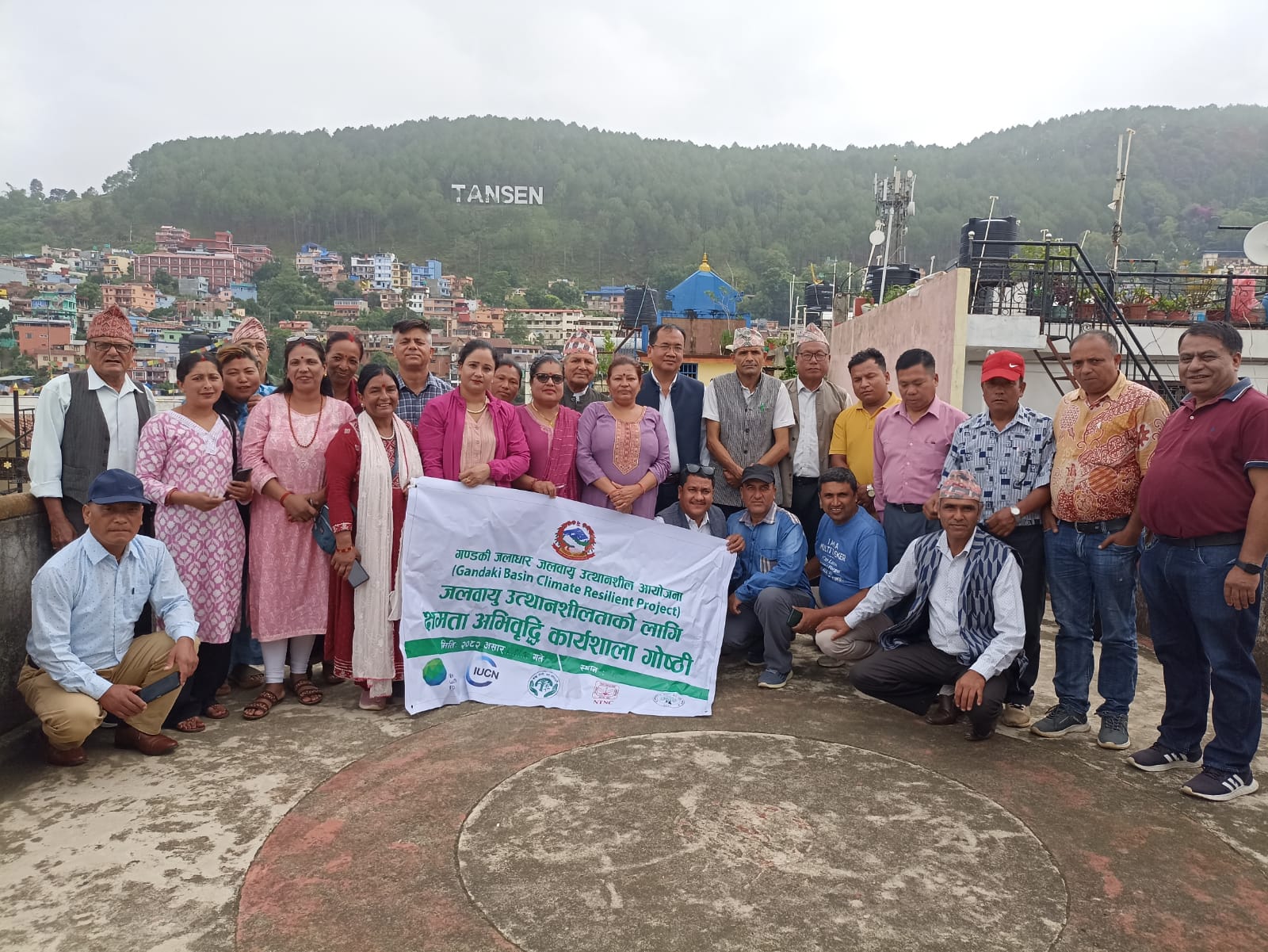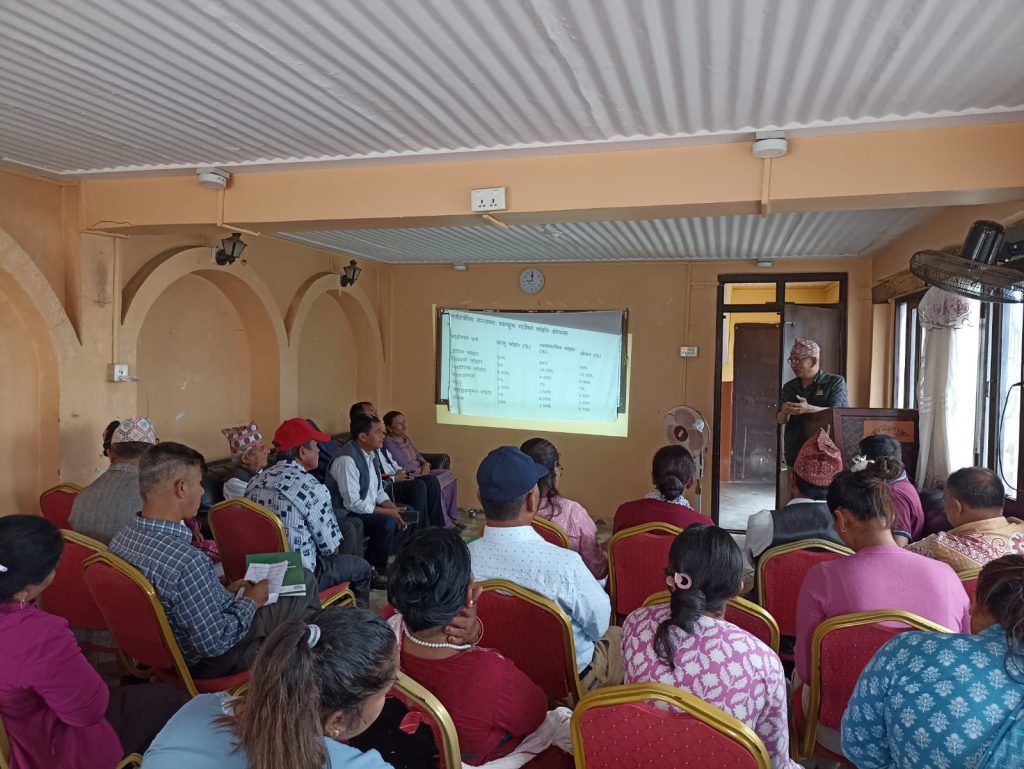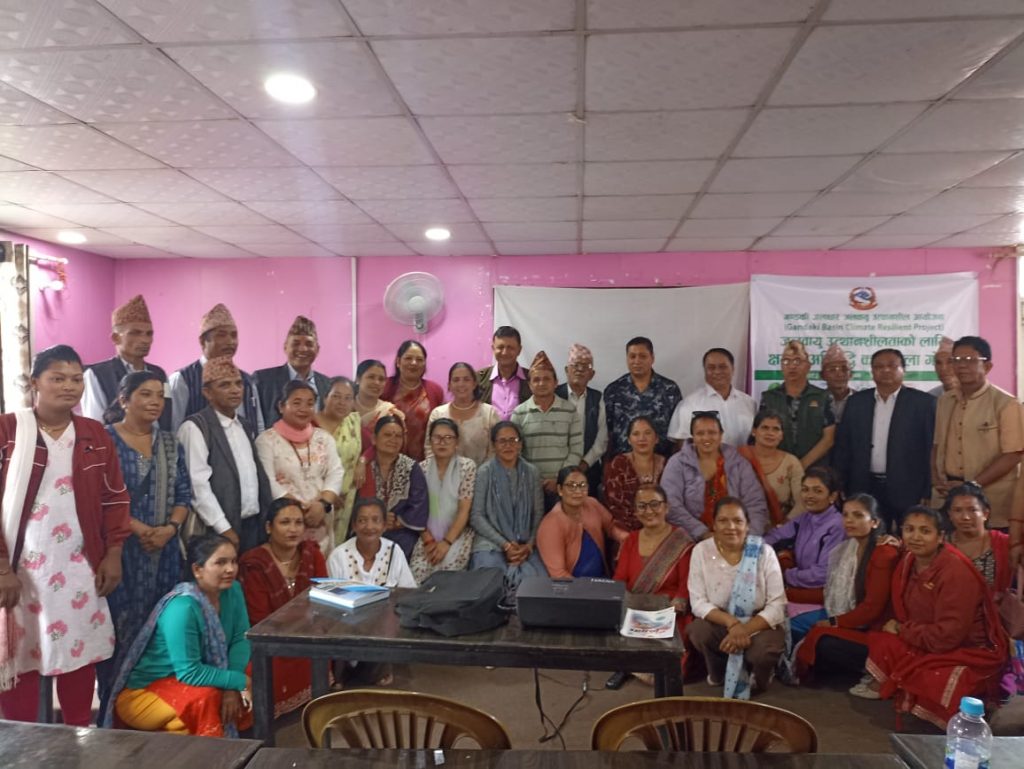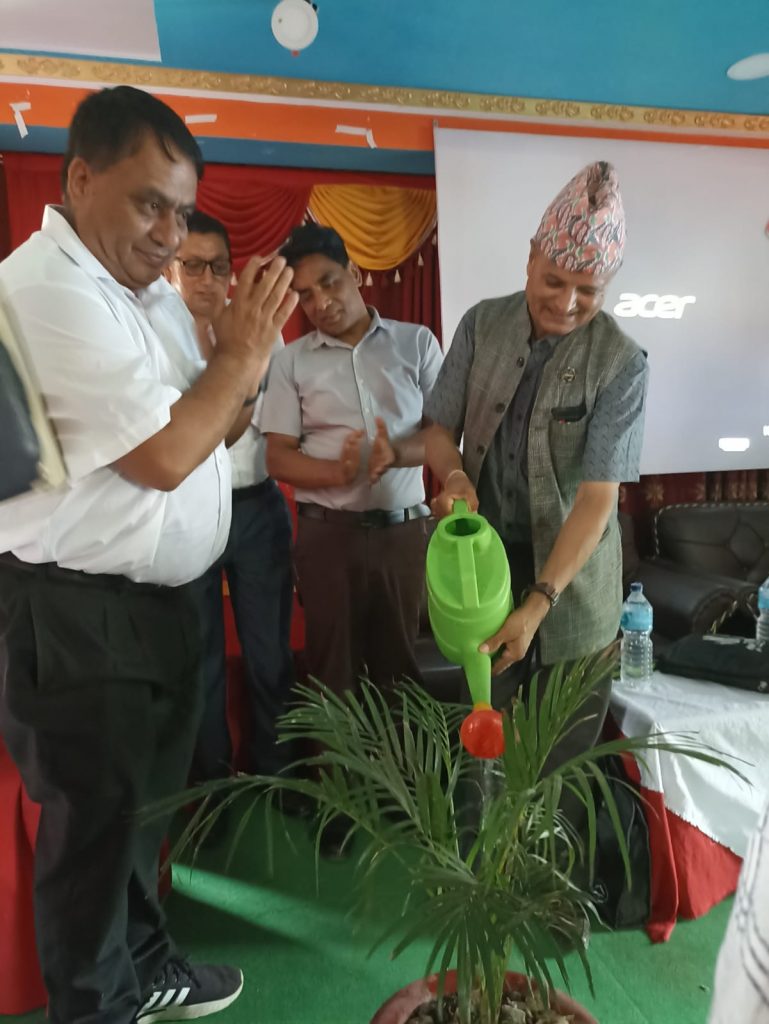Call Us
Mail Us
Address
Kharibot Road, New Baneshwor Ward No. 31, Kathmandu, Nepal

As climate change increasingly affects Nepal’s fragile ecosystems, the need to strengthen local adaptive capacity has become a national priority. In response, a Capacity Building Orientation Training was recently conducted by Association of Family Forest Owners Nepal (AFFON) under the financial support of National Trust for Nature Conservation (NTNC), Gandaki Basin Climate Resilient Project, sanctioned by Green Climate Fund. The training was held from from 8th Ashar to 16th Ashar 2082 in Palpa, Gulmi, and Arghakhanchi districts, focusing on climate-resilient interventions in agroforestry, forestry, wetlands, and grasslands management. The main objective of the training was to build the capacity of local governments and other stakeholders on the use of SOP and also develop a critcical mass capable of applying science-based and climate–resilient ecosystem management.

The training aimed to enhance the understanding and preparedness of local stakeholders in addressing climate-induced risks by promoting sustainable and nature-based land management pra

ctices. The orientation served as a foundation for future technical training and field-based implementation.
The orientation brought together representatives from local governments, family forest farmers, community forest user groups, agriculture and forestry extension officers, CSOs and other related stakeholders. Using a participatory approach, the training combined technical presentations, group discussions, and interactive sessions that encouraged knowledge exchange between facilitators and community members. This orientation marked a significant step in equipping local stakeholders with the knowledge to protect and manage their natural resources in the face of a changing climate. The workshop had conveyed the message of effective management of family forest and raised awareness about climate change.
By fostering local ownership and building capacity at the grassroots level, this initiative is laying the groundwork for long-term climate resilience in Nepal’s mid-hills. The collaboration between communities, local authorities, and technical experts offers a promising path toward sustainable and inclusive ecosystem management.